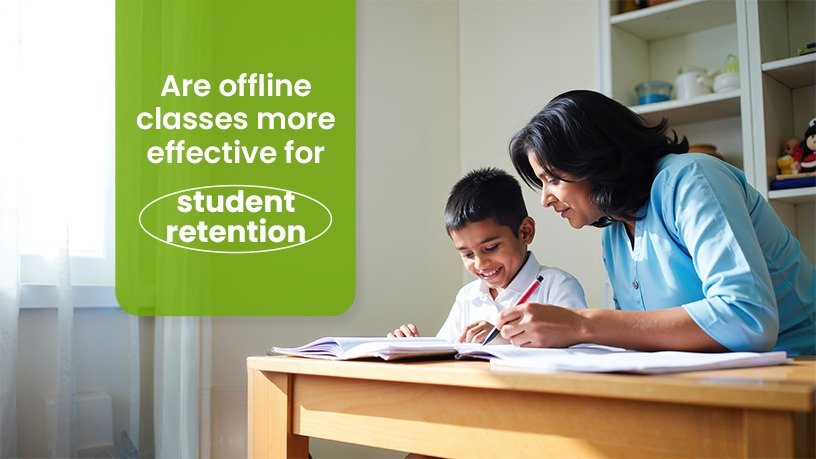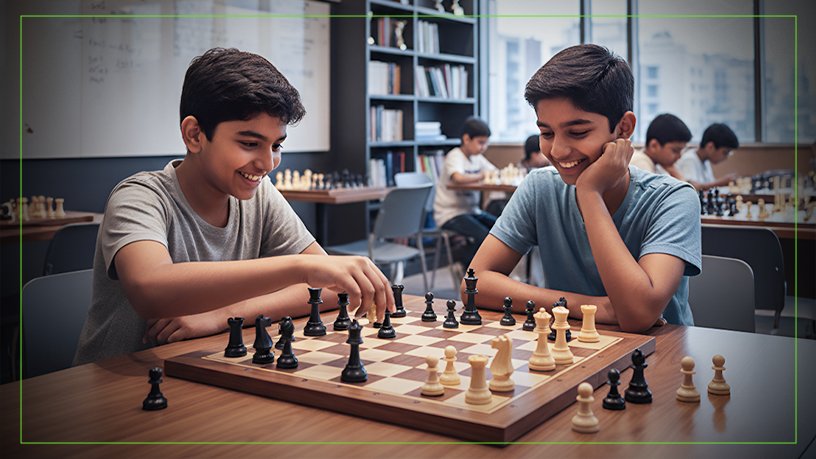Blog Details

Are Offline Classes More Effective for Student Retention?
In today’s fast-evolving educational landscape, the debate over online versus offline classes continues, especially when it comes to student retention and understanding. While online learning has made education more accessible, many educators and students still hold a soft spot for traditional, face-to-face teaching. At Ziel Classes, we offer both online and offline options, catering to diverse needs while always focusing on the best outcomes for students. But a crucial question remains: Are offline classes more effective when it comes to student retention?
In this article, we’ll examine how offline classes create unique benefits, the impact on student retention, and why a blended approach might provide the most balanced solution for today’s learners.
1. The Power of a Structured Learning Environment
One of the significant advantages of offline classes is the physical, structured learning environment they provide. Classrooms naturally remove many distractions students might face at home and help maintain a routine and focus that promotes retention.
In offline classes, students are more likely to focus entirely on the subject matter, without the lure of internet browsing or other at-home interruptions. The consistency of attending a physical space for learning each day establishes a sense of discipline and regularity that significantly enhances retention.
At Ziel Classes, our offline classes are designed to create a conducive atmosphere for focus and engagement, laying a solid foundation for learning.
2. Face-to-Face Interactions with Teachers and Peers
Direct interaction with teachers and classmates can make a big difference in how students absorb and retain information. Being able to ask questions in real-time, observe body language, and receive immediate feedback creates a dynamic learning experience that feels more personal and tailored. In a physical classroom, teachers can instantly adjust their teaching approach based on students’ reactions, which helps address confusion or difficulties on the spot.
Furthermore, engaging with peers during in-class discussions or group activities makes the learning experience more memorable. This sense of community and collaboration reinforces learning, boosts understanding, and ultimately aids in retention. Ziel Classes fosters a collaborative offline environment where students can work together, discuss ideas, and reinforce their learning through group interactions.

Moreover, virtual classrooms demand a degree of self-discipline and responsibility. By managing their schedules, staying on top of assignments, and engaging in classes online, students develop essential time-management skills and self-motivation. These skills are critical for personal growth and success beyond the classroom.
3. Increased Accountability and Motivation
Attending offline classes can increase accountability and motivation. The act of physically going to a class keeps students committed and more focused on their studies, making them less likely to skip lessons or fall behind. In an offline setting, students are in a shared space with others who have the same goals, and this environment can encourage them to perform better.
Offline classes also allow teachers to gauge each student’s participation and engagement directly, enabling more personalised support. Students are more likely to stay motivated and retain information when they feel accountable to their teachers and peers, knowing that they are not just one of many screens on a call but a valued part of the learning process.
At Ziel Classes, our teachers use this advantage to keep students actively engaged, creating an interactive environment that encourages regular participation and continuous learning.
4. Sensory Learning and Practical Application
Offline classes often incorporate hands-on learning and interactive activities that benefit students by involving more of their senses. Many studies suggest that multi-sensory learning—when students engage with the material through seeing, hearing, and physically interacting with it—leads to better memory retention. This is especially true for subjects that require practice, such as mathematics, sciences, or language pronunciation.
zIn Ziel Classes’ offline sessions, our curriculum includes practical exercises, demonstrations, and other engaging activities that reinforce theoretical knowledge, helping students retain information more effectively. For example, language classes might involve conversation practice, role-playing, and even cultural activities, while science classes might use experiments and demonstrations to solidify concepts.
5. Personalised Feedback and Doubt-Clearing Opportunities

Immediate, personalised feedback plays a critical role in student retention. In an offline class, teachers can assess students’ understanding through their expressions, questions, and participation levels, allowing them to adjust their teaching style or provide extra help to those who need it. This real-time interaction helps students identify and address their doubts right away, preventing knowledge gaps that can weaken retention.
At Ziel Classes, teachers are committed to providing one-on-one support for each student, helping them navigate challenging topics and clear doubts. This supportive environment enables students to overcome obstacles on the spot, helping them retain and understand the material more thoroughly.
6. Less Screen Time and More Focused Learning
Excessive screen time is one of the challenges of online learning, leading to “zoom fatigue,” which can reduce attention spans and hinder retention. Offline classes provide a break from screen-based learning, which can help students focus better and retain information. Without the fatigue that comes from staring at screens for extended periods, students in offline settings often feel more alert and engaged.
The structured format of Ziel Classes’ offline lessons helps students maintain their focus throughout the class, creating a more impactful learning experience that encourages long-term retention.
7. A Holistic and Collaborative Learning Experience
In an offline environment, students experience a holistic learning process. Apart from academic learning, students also build social skills, adapt to group settings, and practice teamwork—skills that are essential for their future careers and personal growth. The opportunity to learn alongside peers, share ideas, and engage in healthy competition creates a positive learning environment that enhances retention and makes learning enjoyable.
Ziel Classes prioritises a holistic approach to offline classes, blending academic rigour with collaboration, teamwork, and healthy social interaction. This approach creates a more enriching learning experience that fosters both retention and personal development.
8. Combining the Best of Both Worlds: The Blended Approach
While offline classes offer numerous benefits for retention, it’s essential to recognise that online learning has its own strengths, such as flexibility and accessibility. A blended approach, combining the strengths of both online and offline education, can be the most effective for retention. With this method, students benefit from the structure and support of offline learning while enjoying the convenience and resources of online platforms.
At Ziel Classes, we offer a blended model where students can attend classes in person but also access online materials, recorded lectures, and additional resources for further learning. This hybrid approach provides the structure and discipline of offline classes with the flexibility and convenience of online learning, creating a balanced and adaptable education model that promotes retention.

Are Offline Classes More Effective for Retention?
Offline classes undeniably provide a structured, interactive, and collaborative environment that enhances student retention through face-to-face interactions, immediate feedback, and hands-on learning. By participating in these traditional classes, students benefit from fewer distractions, more accountability, and the holistic development of academic and social skills.
At Ziel Classes, we strive to create a classroom experience that maximises these benefits, helping students retain and understand knowledge in a way that prepares them for both academic success and future challenges. Whether through offline or blended learning, we’re committed to providing students with a retention-focused education that truly supports their growth and learning journey.



